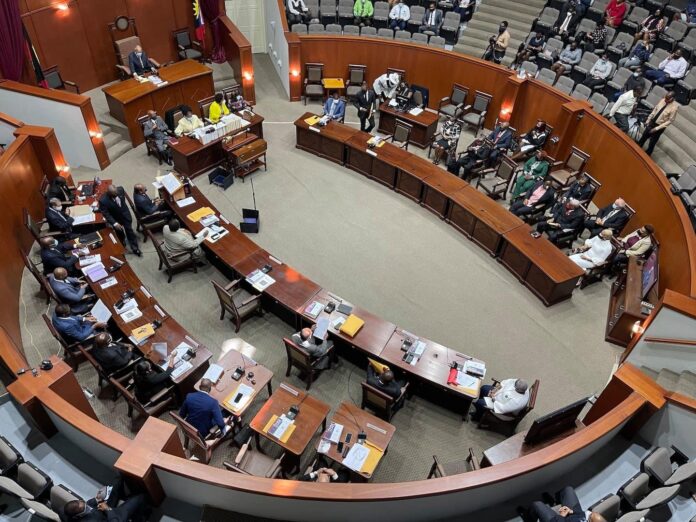The much-anticipated parliamentary debate on the multi-million-dollar investment proposal for the Jolly Beach Hotel has been postponed to a date in August 2025.
Attorney General Sir Steadroy Benjamin had earlier announced that Parliament would convene on Thursday, 31st July, to discuss the proposal. However, the government has since confirmed that Cabinet will instead hold its final meeting for the month on that day, from 9:30 a.m. to 5:00 p.m. As a result, the parliamentary sitting has been deferred.
A new date will be confirmed in August, and the public will once again be invited to attend.
The proposed investment involves the Social Security Scheme playing a significant role in the redevelopment of the Jolly Beach Resort. During a recent Cabinet meeting, Director of Social Security David Matthias and Deputy Director Geoffrey Joseph presented a comprehensive report on the Scheme’s performance over the past 15 years.
According to Director General of Communications Maurice Merchant, both officials expressed strong support for the investment, citing provisions in the Social Security Act that place investment oversight under a designated committee, guided by the responsible Minister—in this case, the Cabinet.
Discussions underscored the importance of a clear legal and fiduciary framework, noting that all investment decisions require Cabinet approval. The Scheme’s resilience was highlighted, especially in light of the 2010–2013 financial crisis that led to a $30 million IMF bailout. Under the administration of Prime Minister Gaston Browne, the Scheme has since stabilised, despite facing challenges such as reduced contributions during the COVID-19 pandemic.
The Scheme now reports 47,000 active contributors and a monthly surplus of EC $2 million. However, officials noted that increased life expectancy poses long-term sustainability concerns, with pensioners now drawing benefits for longer periods. The current contributions-to-payout ratio stands at 5.9:1, below the preferred 10:1.
Talks also addressed the need for reforms to ensure the Scheme’s financial future, including real estate investments, stronger legal oversight, and regional collaboration.
The Antigua Labour Party introduced the Social Security Scheme in 1965 as part of its plan to replace the Poor Relief System with a National Provident Fund, aiming to provide more robust support for the nation’s poor and indigent.


